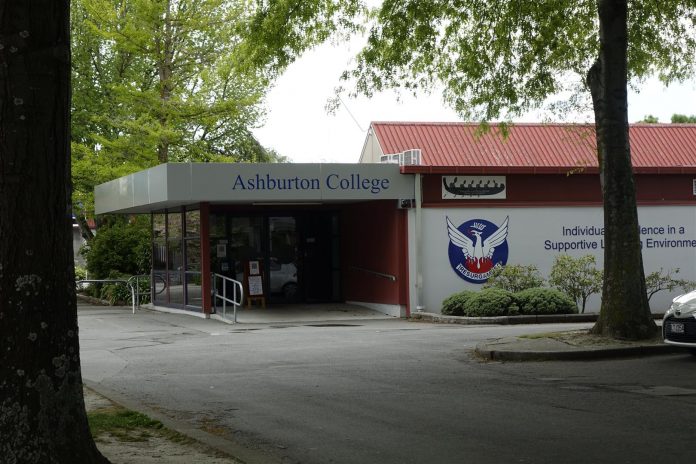An independent review of bullying at Ashburton College has been publicly released.
The college engaged independent reviewer Suzie Sauer, recommended by the New Zealand School Trustees Association, to undertake a review of the school’s policies and procedures and evaluate how effective and/or accessible the schools current processes are.
Ms Sauer spoke to each of the nine complainants (eight females and one male) ‘‘to understand their concerns, perspectives and experiences, and then considered the actions that the college took for each of these concerns and whether such action was in line with our policies and procedures.’’
She also interviewed 11 staff from Ashburton College.
College board of trustees chairperson Jen Muir and principal Ross Preece, in a joint statement, said they believed the review gave reassurance to the school and wider community the college was providing ‘‘a safe and supportive environment for our students.’’
It pointed out that no complaints of student bullying behaviour were brought to the Ashburton College principal or board of trustees between 2017 and the current date.
‘‘The only complaints of this nature that have been received have come through TVNZ.’’
The scope of the review was to evaluate complaints provided to TVNZ, from 2017 onwards, being the date of commencement of the Mr Preece’s term at Ashburton College.
Ashburton College provided the reviewer the names of parents/caregivers who had complained to TVNZ about student bullying behaviour at Ashburton College which fell within the scope of the reviews five year time period.
The reviewer scheduled phone or Zoom sessions with each of them to explain about the review and to hear their concerns.
‘‘Key points from these conversations were transcribed and a copy of this was presented to each complainant for comment and
approval for use within the review.’’
A session was held with members of the senior leadership team and heads of school from Ashburton College to review the collated information for completeness, to discuss some of the feedback received and how it relates to the concerns and complaints policy, and the colleges practises.
The review findings included; ‘‘The cases range in the degree with which they informed and engaged with the college regarding their concerns from not informing the college at all, all the way through to informing the college of everything including emailing a staff member in the middle of the night to ask them to help because they were being bullied on Instagram Live.
‘‘The majority of cases are complex, involving multiple incidents, people, interventions and occurred both inside and out of school with hours of work conducted by the college to support these students in all of the cases the college was aware of.’’
The reviewer concluded ‘‘the college was undertaking the actions expected of them within the concerns and complaints policy and in many
cases, exceeding them.
‘‘In the few instances where policy expectations were not met the recommendation has been made to: remove barriers for raising concerns, including communicating more widely about the process; helping students/caregivers to understand the steps that have been taken towards a resolution for them; identifying a process that allows care to be shown even when the outcome the student or parent/caregiver is
after is not met; standardising processes for follow-up and feedback to ensure there is a full understanding of the actions that have been taken and to more readily identify if the concern has been resolved.’’
Mrs Muir and Mr Preece said the key priority for the board, senior leadership team and staff was the engagement and well-being of the students.
‘‘We are pleased that the report also identified some recommendations that the colleges management and board will implement.’’
Recommendations included; Investigating ways to remove or reduce the barriers present for students and parents/caregivers raising concerns.
Review procedures followed when gathering information from people who are raising concerns, including communicating clearly with student and parent/caregiver that the intention is to only address the issue at hand.
Review processes used to address bullying to identify ways to reduce the risk of retaliatory behaviour.
The report finished stating, ‘‘Students are only at school for a small amount of time and unhelpful are occurring outside of this time and so the college is recommended to investigate additional community-wide support to address the larger community issue because it is difficult to see how a school can resource the increased demands that more increasingly complex community-based issues present.’’
The full report is available on the Ashburton College website.
College bullying review
- Advertisement -




